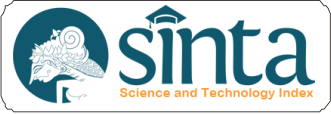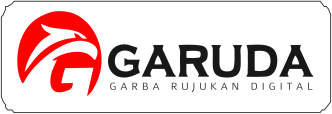Inkuiri dalam Pengajaran dan Pembelajaran Sains
Abstract
Science education is very importance for developing three elements, namely; science concept knowledge, science process skill and scientific attitude. These elements had been a challenge for the pre-service science teachers to study especially in the Indonesia curriculum context. Thus, Pre-service science teachers require implementing science teaching and learning by using inquiry. Inquiry is one of models of teaching which implemented by hands-on dan minds-on. In order to be able to teach science by using inquiry effectively and meaningfully to pre-service science teachers, the lecturer should possess a strong understanding and must exhibit competence in inquiry to be able to effectively teach in their classroom. By using inquiry leads to the suggestion of the enhancement of pre-service science teachers’ science concept knowledge, science process skill and scientific attitude by using inquiry based learning.
References
Abd-El-Khalick, Fouad, ‘Embedding Nature of Science Instruction in Preservice Elementary Science Courses: Abandoning Scientism, But...’, Journal of Science Teacher Education, 12.3 (2001), 215–33
Abell, Sandra K, Ken Appleton, and Deborah L Hanuscin, Handbook of Research on Science Education (Routledge, 2013)
Adey, Philip, The Professional Development of Teachers: Practice and Theory (Springer Science & Business Media, 2004)
Badan Standar Nasional Pendidikan, Panduan Penyusunan KTSP Jenjang Pendidikan Dasar Dan Menengah (Jakarta: Badan Standar Nasional Pendidikan, 2006)
Bucat, Robert, ‘Pedagogical Content Knowledge as a Way Forward: Applied Research in Chemistry Education’, Chemistry Education Research and Practice, 5.3 (2004), 215–28
Carin, Arthur A, Joel E Bass, and Terry L Contant, Teaching Science as Inquiry (Prentice Hall, 2005)
Colburn, Alan, ‘An Inquiry Primer’, Science Scope, 23.6 (2000), 42–44
Departemen Pendidikan Nasional, Pelbagai Pendekatan Dan Model Dalam Pembelajaran (Jakarta: Ditjen Dikdasmen. Direktorat Pendidikan Lanjutan Pertama., 2006)
Esler, William K, and Mary K Esler, Teaching Elementary Science (ERIC, 1989)
Exline, J, ‘Inquiry-Based Learning: Explanation. Concept to Classroom’, in Workshop: Inquiry-Based Learning, 2004
Firman, Harry, and Ari Widodo, ‘Buku Panduan Pendidik Ilmu Pengetahuan Alam Sekolah Dasar’, Jakarta: Pusat Perbukuan Departemen Pendidikan Nasional, 2007
Flick, Lawrence B., and Norman G. Lederman, eds., Scientific Inquiry and Nature of Science, Science & Technology Education Library (Dordrecht: Springer Netherlands, 2004), XXV
Halim, Lilik, Kamisah Osman, and Zanatun Hj Iksan, Perkaitan Di Antara Sikap Saintifik Dan Sikap Terhadap Sains Di Kalangan Pelajar Sekolah Menengah., 2002
Hamman, Douglas, Joelle Berthelot, Jodi Saia, and Ellen Crowley, ‘Teachers’ Coaching of Learning and Its Relation to Students’ Strategic Learning.’, Journal of Educational Psychology, 92.2 (2000), 342
Harlen, Wynne, Confidence and Understanding in Teaching Science and Technology in Primary Schools. (ERIC, 1995)
Haury, David L, ‘Teaching Science through Inquiry. ERIC/CSMEE Digest.’, 1993
Hinduan, A A, ‘The Development of Teaching and Learning Science at Primary School and Primary School Teacher Education’ (Final Report URGE Project. Loan IBRD, 2001)
Joyce, Bruce, Marsha Weil, and Emily Calhoun, Models of Teaching, Centers for Teaching and Technology - Book Library, 2003
Kauchak, Paul, and P D Eggen, ‘Strategies for Teachers, Teaching Content and Thinking Skills’ (Allyn and Bacon Publisher. Boston, 2001)
Keys, Carolyn W, and Lynn A Bryan, ‘Co‐constructing Inquiry‐based Science with Teachers: Essential Research for Lasting Reform’, Journal of Research in Science Teaching: The Official Journal of the National Association for Research in Science Teaching, 38.6 (2001), 631–45
Lateh, Habibah, and Punitha Muniandy, ‘Environmental Education (EE): Current Situational and the Challenges among Trainee Teachers at Teachers Training Institute in Malaysia’, Procedia-Social and Behavioral Sciences, 2.2 (2010), 1896–1900
Mamlok-Naaman, Rachel, Oshrit Navon, Miriam Carmeli, and Avi Hofstein, ‘Teachers Research Their Students’ Understanding of Electrical Conductivity’, Australian Journal of Education in Chemistry, 62 (2003), 13–20
Martin-Hansen, Lisa, ‘Defining Inquiry’, The Science Teacher, 69.2 (2002), 34
Martin, David Jerner, Elementary Science Methods: A Constructivist Approach (Cengage Learning, 2012)
Mulyana, Enco, ‘Kurikulum Berbasis Kompetensi, Konsep, Karakteristik Dan Implementasi’, Bandung: Remaja Rosda Karya, 2003
Nana Syaodih, Sukmadinata, ‘Landasan Psikologi Proses Pendidikan’, Bandung: PT Remaja Rosdakarya, 2003
National Research Council, Inquiry and the National Science Education Standards: A Guide for Teaching and Learning (National Academies Press, 2000)
Nivalainen, Ville, Mervi A Asikainen, and Pekka E Hirvonen, ‘Open Guided Inquiry Laboratory in Physics Teacher Education’, Journal of Science Teacher Education, 24.3 (2013), 449–74
Nuangchalerm, Prasart, ‘Enhancing Pedagogical Content Knowledge in Preservice Science Teachers’, Higher Education Studies, 2.2 (2012), 66–71
Nuangchalerm, Prasart, and Veena Prachagool, ‘Influences of Teacher Preparation Program on Preservice Science Teachers’ Beliefs’, International Education Studies, 3.1 (2010), 87–91
Ogunbiyi, Joseph O, and Josiah O Ajiboye, ‘Pre-Service Teachers’ Knowledge of and Attitudes to Some Environmental Education Concepts Using Value Education Strategies’, The Anthropologist, 11.4 (2009), 293–301
Osman, Kamisah, ‘Sikap Terhadap Sains Dan Sikap Saintifik Di Kalangan Pelajar Sains’, Jurnal Pendidikan Malaysia (Malaysian Journal of Education), 32 (2007)
Othman, Rusilawati, and Zainon Abdul Majid, ‘Pedagogical Content Knowledge in The Malaysian School Science Curriculum’, in Teachers Professional Knowledge in Science and Mathematics Education: Views from Malaysian and Abroad, ed. by O De Jong and Lilik Halim (Selangor: Universiti Kebangsaan Malaysia, 2009)
Özdilek, Zehra, and Nermin Bulunuz, ‘The Effect of a Guided Inquiry Method on Pre-Service Teachers’ Science Teaching Self-Efficacy Beliefs’, Journal of Turkish Science Education, 6.2 (2009), 24–42
Patimah, Patimah, ‘Faktor-Faktor Yang Berkontribusi Terhadap Kinerja Guru Dan Mutu Pembelajaran Di Madrasah Ibtidaiyah Negeri (MIN) Kota Bandar Lampung’ (Universitas Pendidikan Indonesia, 2007)
Piburn, Michael D, and Dale R Baker, ‘If I Were the Teacher... Qualitative Study of Attitude toward Science.’, Science Education, 77.4 (1993), 393–406
Pusat Kurikulum, Model-Model Pembelajaran (Jakarta: Pusat Kurikulum Balitbang Depdiknas, 2007)
Quintana, Chris, Meilan Zhang, and Joseph Krajcik, ‘A Framework for Supporting Metacognitive Aspects of Online Inquiry through Software-Based Scaffolding’, Educational Psychologist, 40.4 (2005), 235–44
Reif, Frederick, ‘Understanding and Teaching Important Scientific Thought Processes’, Journal of Science Education and Technology, 4.4 (1995), 261–82
Rustaman, N Y, ‘Teaching Science to Develop Scientific Abilities in Science Education’, in Proceeding of the 2nd International Seminar of Science Education, 2008, pp. 94–99
Rustaman, N Y, and R Efendi, ‘A Study on Learning Cycles Model through Hands-on Techniques Based on Conceptual Mastery and Inquiry Ability for Secondary School Science’ (Makalah dipresentasikan pada APEC Seminar on Best Practices and Innovations …, 2004)
Rustaman, Nuryani Y, ‘Basic Scientific Inquiry in Science Education and Its Assessment’, in First International Seminar on Science Education, Postgraduate Programme, Indonesia University of Education, Held on 27th of October, 2007
Sanjaya, Wina, Strategi Pembelajaran Berorientasi Standar Proses Pendidikan (Jakarta: Kencana, 2007)
Sardjono, Sardjono, ‘Permasalahan Pendidikan MIPA Di Sekolah Dan Upaya Pemecahannya’, in Seminar Nasional Pendidikan MIPA (Malang: FMIPA UM Malang, 2000)
Schwarz, Christina V, and Yovita N Gwekwerere, ‘Using a Guided Inquiry and Modeling Instructional Framework (EIMA) to Support Preservice K‐8 Science Teaching’, Science Education, 91.1 (2007), 158–86
Shahali, Edy Hafizan Mohd, ‘Konsepsi, Tahap Penguasaan Dan Pelaksanaan Kemahiran Proses Sains Bersepadu Dalam Kalangan Guru Sains Sekolah Rendah Di Kuala Lumpur’ (Universiti Kebangsaan Malaysia, 2012)
Sherman, S J, Science and Science Teaching. Introduction the Process of Science (New York: Houghton Mifflin Company, 2005)
Suyudi, A, Dasar-Dasar Sains: Individual Teks Books (Malang: FMIPA Universitas Negeri Malang, 2003)
Venville, Grady, and Vaille Dawson, The Art of Teaching Science (Allen & Unwin, 2004)
Wainwright, Wainwright, ‘CIBL (Center for Inquiry-Based Learning)’, 2006
Widodo, Ari, ‘The Feature of Biology Lesson: Result of a Video Study’, in 2nd UPI-UPSI Joint International Conference August, 2006, VIII, 2006











